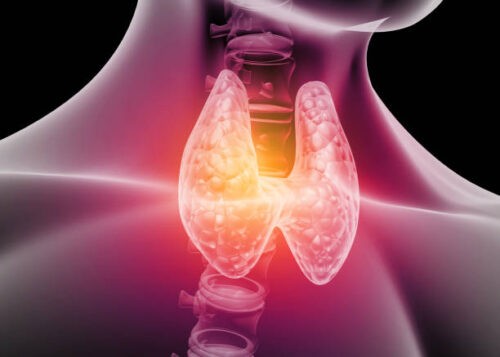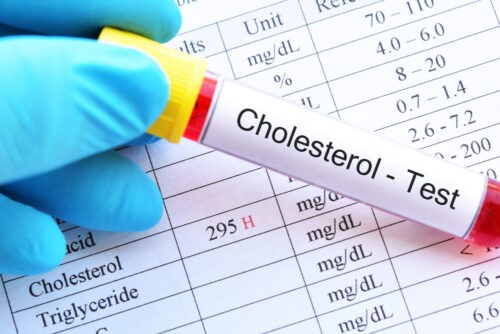
Sarah had been suffering for a long time. She was always tired, her thinking felt cloudy, and she had trouble losing weight—even when she ate healthy and exercised. She was taking a thyroid medicine called synthetic T4, but it wasn’t helping much. Her hair was thinning, her skin was dry, and she felt cold all the time. Still, her doctors told her the medicine was all she needed.
One day, while getting her hair done, Sarah talked to her stylist about her hair loss. The stylist said, “My sister had the same problem. She saw a doctor in the South Hills of Pittsburgh—Dr. Kevin Smith—and he helped her feel better.” She gave Sarah Dr. Smith’s phone number and suggested she call him.
Sarah called Dr. Smith at the Chronic Conditions Center. They spoke for 20 minutes on the phone. Dr. Smith really listened. He asked her to come in for a full visit and sent her some paperwork and health questionnaires to fill out.
Right away, Sarah could tell that Dr. Smith was different. He cared about things her other doctors never asked about—like her sleep, stress, food, exercise, and how her health problems were affecting her life.

He also told her something surprising: 90% of people with low thyroid have something called Hashimoto’s disease. This is when the body’s immune system attacks the thyroid. But most regular doctors never test for it—and even if they do, their treatment doesn’t change.
Dr. Smith explained that thyroid problems often have 9 hidden triggers, which include:
To find out which ones were affecting Sarah, they needed to run tests—blood, urine, saliva, and stool—so they could get real answers instead of guessing.
“I now feel normal again. My energy is up, I get a full night’s sleep, the brain fog is completely gone and for the first time I’m actually starting to lose weight. I feel like a completely different person. If you have thyroid problems, you have to try Dr. Smith.”
– Doug S., Monroeville, PA
“Once I consulted with Dr. Smith, he put me back on a drug-free, natural approach to bring my body back to a neutral state. I am finally back to my old healthy, feeling great self and I couldn’t be happier! Thank you Dr. Smith!”
– Kathy W., Pittsburgh, PA
“What’s even more impressive is that he was able to COMPLETELY eliminate 100% of my symptoms without medication, but rather through changing my diet and prescribing some supplements. I feel amazing and I totally believe in Dr. Smith.”
– Debbie C., Upper St. Clair, PA
“Because his approach to hypothyroid problems is different, I feel better than I have in 20 years. I’ve lost weight, my energy is back and I can think clearly. If you have a thyroid issue, you must try Dr. Smith. He’s an amazing doctor.”
– Mark A., Pittsburgh, PA
“His method of treating thyroid is different from other physicians. Rather than taking more and more drugs, he found certain foods I was eating which were the cause of my problems. His methods are different, they work and I couldn’t be more happy. I feel better every day now, thanks to Dr. Smith! This is truly life-changing care.”
– Susan M., Castle Shannon, PA

Sarah agreed to do the first round of blood and urine tests. These gave Dr. Smith a starting point. From there, he ordered more tests—for food sensitivities, hormone levels, gut health, and adrenal function.
The results showed the full picture: Sarah did have Hashimoto’s disease. But she also had five other triggers—problems in her gut, food reactions, hormone imbalances, adrenal fatigue, and ongoing inflammation.
Dr. Smith created a custom plan just for Sarah. It included a special diet, professional-grade supplements, and a few simple lifestyle changes.
Within 2 months, Sarah felt like a new person. Her brain fog was gone. She had more energy than she’d had in years. She lost 20 pounds. Her hair stopped falling out—and even started growing in thicker. She felt better at work, more confident, and much happier.
If Sarah hadn’t picked up the phone and tried something different, she would still be stuck in the same cycle. Her regular doctors didn’t run enough tests or look at the bigger picture. And without real answers, her thyroid would have kept getting worse.
If you’re struggling with thyroid symptoms that won’t go away, you don’t have to keep suffering. Dr. Kevin Smith might be able to help you too—just like he helped Sarah.
Our mission is to be Pittsburgh’s top center for chronic conditions, specializing in chiropractic care and functional medicine. We provide innovative, non-invasive treatments that address root causes, helping patients achieve lasting wellness.
© Copyright 2012 - 2024 | CHRONIC PA | ALL RIGHTS RESERVED